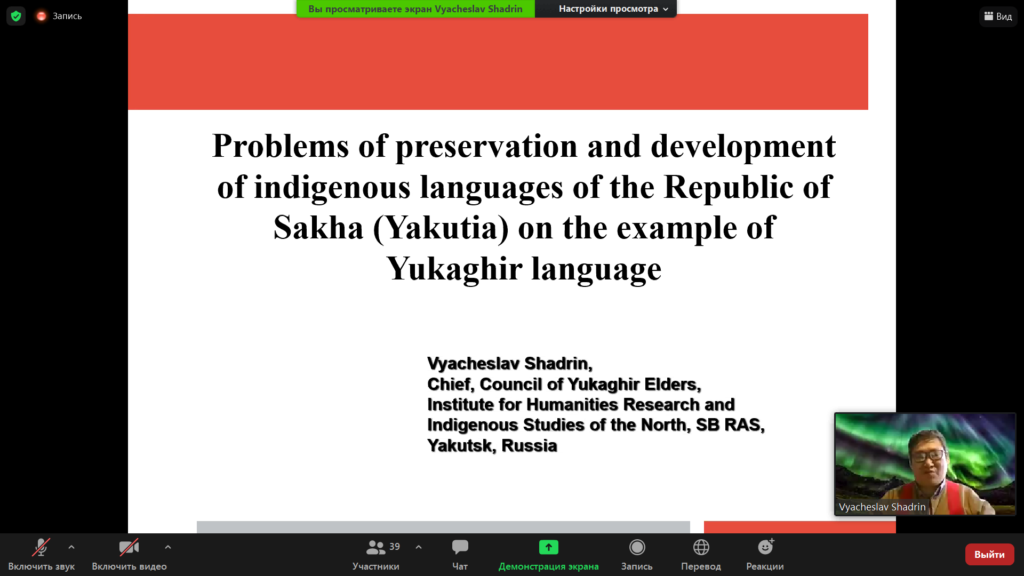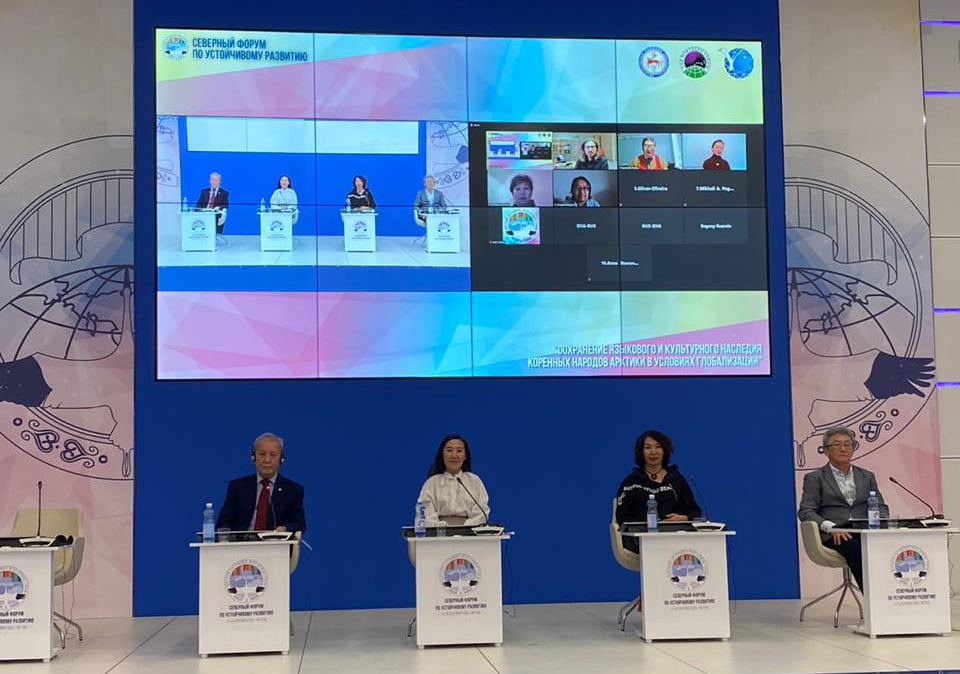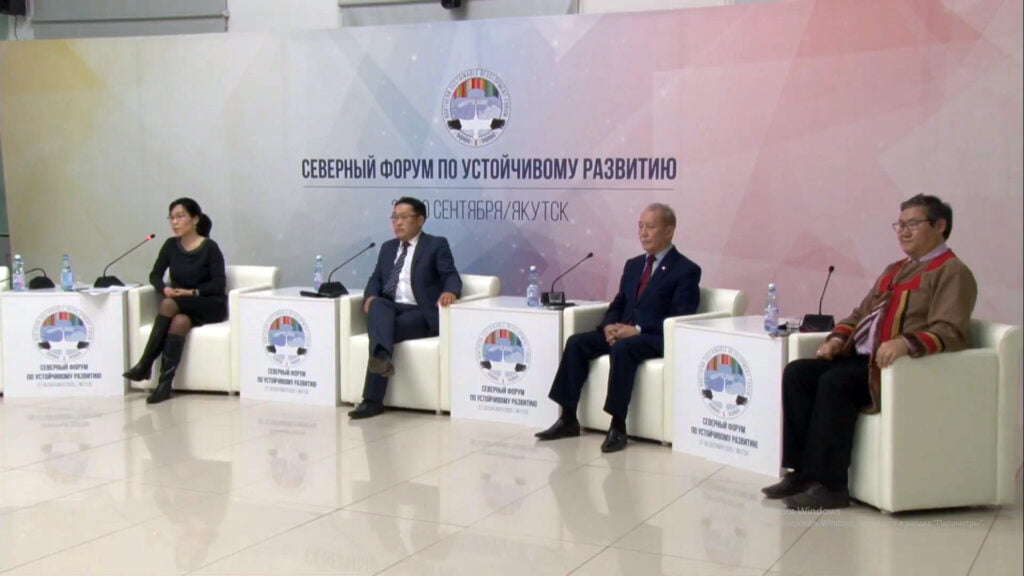On February 15 and 19, 2021 within the framework of cooperation between the international UNESCO Chair of NEFU and the Federal University of Santa Catarina (Brazil), ‘Multilingualism and foreign language policy in Brazil and Russia: dialogue’ seminar was held in the format of a videoconference. More than 40 people took part in the seminar: scientists, researchers, linguistics specialists, students, undergraduates and graduate students.
On the first day of the seminar, on February 15, 2021, the Brazilian side made a speech: Professor, Head of the UNESCO Chair ‘Language Policies for Multilingualism’ at the University of Santa Catarina, Gilvan Müller de Oliveira made a presentation on ‘Multilingualism in Brazil and South America’, and also spoke about the activities and researches of his Chair; University of Santa Catarina researcher Maria Cristina Macedo Alencar presented her research paper on ‘Challenges in bilingual intercultural school education among Aikewara and Guarani-Mbyá in Southeast Pará’, according to which last year she defended her Ph.D. thesis.
The speakers noted that monolingualism, the identification of Portuguese as a Brazilian identification mark, devalues other Brazilian languages, and that most of the indigenous languages of Brazil are in a state of vulnerability and high risk of extinction. In addition, during the seminar, Professor Gilvan Müller de Oliveira named three main social technologies used in Brazil to create multilingualism: co-officializing languages at the local level, recognizing languages as a national heritage, and promoting bilingualism on the country’s border.
After the speeches, the speakers answered the questions of the seminar participants about the impact of multilingualism on ethnos, the policy in Brazil regarding the languages of indigenous peoples, the problems of monolingualism and multilingualism, as well as the standards of teaching and learning the native language for indigenous peoples.
The Russian side, in turn, spoke on the second day of the seminar on February 19, 2021. The following reports were presented by the participants:
– Anatoly Zhozhikov Vasiliyevich, д.п.н., заведующий международной кафедрой ЮНЕСКО «Адаптация общества и человека в арктических регионах в условиях изменения климата и глобализации» СВФУ, о проекте «Цифровизация языкового и культурного наследия коренных народов Арктики»;
– Шадрин Вячеслав Иванович, научный сотрудник ИГИиПМНС СО РАН, председатель Совета старейшин юкагирского народа, вице-президент Ассоциации коренных малочисленных народов Севера Республики Саха (Якутия), о языках коренных малочисленных народов Севера России «Проблемы сохранения и развития языков КМНС Якутии на примере юкагирского языка»;
– Заморщикова Лена Иннокентьевна, доцент кафедры английской филологии ИЗФИР СВФУ, о собственно разработанной методике преподавания английского языка «Изучение английского с помощью новостных ресурсов: эффективный метод развития языковых навыков на Крайнем Севере России»;
– Заморщикова Людмила Софроновна, к.ф.н., профессор кафедры французской филологии ИЗФИР СВФУ, о международной научно-исследовательской лаборатории «Лингвистическая экология Арктики».
During the seminar, special attention was paid to the preservation and development of the cultural and linguistic diversity of peoples, teaching and studying native language and literature in the Far North. Projects aimed at preserving and popularizing the languages of indigenous peoples were also presented.
Traditionally, at the final stage of the seminar, the speakers answered questions. During the discussion, the participants exchanged views, opinions were expressed, as well as ideas that in the future may form the basis of current and, possibly, future projects.
Sargylana Protopopova
NEFU UNESCO Chair









